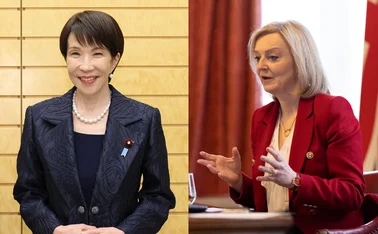
Policy-makers making risky ‘one-round bet’ on Covid-19 – El-Erian
Former Pimco chief worried about ability of policy-makers to tackle a ‘second wave’

Governments, multilateral institutions, central banks and market participants around the world appear to be taking a high-risk, ‘one-round bet’ to counter the economic and financial fallout of the Covid-19 pandemic, according to Allianz chief economic adviser Mohamed El-Erian. The danger is that current efforts to stamp out the novel coronavirus may not succeed in full, requiring further action in the future.
Governments have enforced population lockdowns in most of the world’s major economies, including China, the European Union, India, Japan and the US, at some point this year in a bid to protect lives from Covid-19. This has led to almost unheard-of peacetime hits to the real economy. To counter the economic fallout, many governments have unveiled large fiscal injections to prop up companies and support jobs. Central banks, for their part, have rolled out unprecedented monetary and quasi-fiscal stimulus packages to calm spillover effects into the banking and financial system.
Despite the multi-trillion-dollar interventions, the IMF expects the current lockdowns to result in global growth contracting by between 3% and 6% this year – the biggest decline in peacetime growth since the Great Depression in the 1920s.
El-Erian, speaking in a recent in-depth interview with Central Banking, said it was appropriate for lawmakers and policy-makers to focus on saving lives as the death toll from the novel coronavirus had exceeded 130,000 worldwide.
But he was worried that policy-makers were using most of the tools available to them to address the current wave of the pandemic, leaving themselves with restricted options, should there be a need for repeated interventions. Some epidemiologists fear the pandemic could sweep the world in waves until a ‘herd immunity’ is achieved or an effective vaccine is made widely available.
“Central banks, governments, the IMF and markets [are] stumbling into placing what game theorists call a ‘one-round bet’, said El-Erian. “We’ve deployed so much, so quickly, that we are basically assuming that this is a ‘one-round game’. That the economic shutdown happens and then we reopen the economy.”
El-Erian is concerned that there is not enough attention being placed on viable policy options, should this not turn out to be the case: “If it turns out to be a ‘multi-round game’, then we [had] better start thinking about contingency plans and reserves for central banks. There are a lot of consequences if it turns out that this is a multi-round game and not a one-round game.”
The former Pimco chief, who ran the asset manager during the global financial crisis, also expressed concern about the rapid financial market rebound last week, despite not seeing any major issues with market function around the world following large-scale central bank interventions.
“It’s hard to point to any badly functioning market right now,” said El-Erian on April 13. “But I want to stress that this is a day-by-day issue. If anything, we should be worried that markets have bounced way too quickly, given the underlying fundamentals.”
Only users who have a paid subscription or are part of a corporate subscription are able to print or copy content.
To access these options, along with all other subscription benefits, please contact info@centralbanking.com or view our subscription options here: www.centralbanking.com/subscriptions
You are currently unable to print this content. Please contact info@centralbanking.com to find out more.
You are currently unable to copy this content. Please contact info@centralbanking.com to find out more.
Copyright Infopro Digital Limited. All rights reserved.
As outlined in our terms and conditions, https://www.infopro-digital.com/terms-and-conditions/subscriptions/ (point 2.4), printing is limited to a single copy.
If you would like to purchase additional rights please email info@centralbanking.com
Copyright Infopro Digital Limited. All rights reserved.
You may share this content using our article tools. As outlined in our terms and conditions, https://www.infopro-digital.com/terms-and-conditions/subscriptions/ (clause 2.4), an Authorised User may only make one copy of the materials for their own personal use. You must also comply with the restrictions in clause 2.5.
If you would like to purchase additional rights please email info@centralbanking.com







